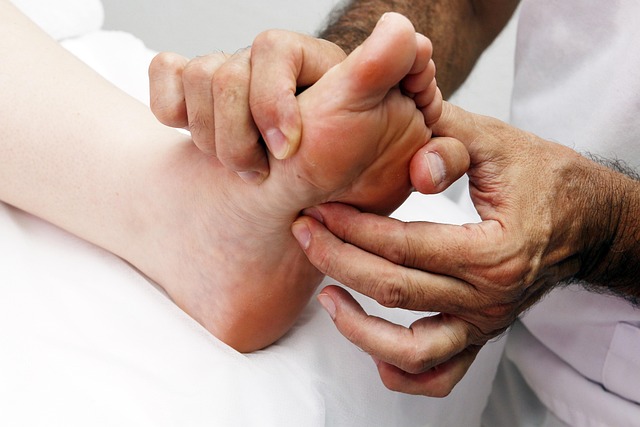Personalized care plans, tailored to individual needs and goals, revolutionize long-term physical health management by integrating injury recovery and physical care. These plans consider age, lifestyle, health conditions, and personal preferences, leading to effective, patient-centered programs. For instance, athletes may receive specific routines for flexibility regain coupled with dietary adjustments for muscle repair, resulting in faster healing, enhanced long-term health, and increased engagement. By adopting a holistic approach that includes rest, tailored exercises, optimal nutrition, and psychological support, these plans reduce chronic condition risks, improve mobility and flexibility, and significantly elevate quality of life.
Personalized care plans are transforming long-term physical health management. In today’s world, one-size-fits-all approaches often fall short of addressing unique individual needs. This article explores how tailored care plans, focusing on injury recovery, can significantly enhance overall physical well-being. We delve into the key components of effective strategies and highlight a holistic approach to implementing and tracking progress. Discover how prioritizing personalized physical care can revolutionize your long-term health journey.
- Understanding Personalized Care Plans: Tailoring for Individual Needs
- The Role of Injury Recovery in Long-Term Physical Health
- Components of an Effective Physical Care Strategy
- Implementing and Tracking Progress: A Holistic Approach
Understanding Personalized Care Plans: Tailoring for Individual Needs

Personalized care plans are a revolutionary approach in long-term physical health management, acknowledging that each individual has unique needs and goals when it comes to injury recovery and physical care. These plans move beyond one-size-fits-all strategies by considering factors like age, lifestyle, underlying health conditions, and personal preferences. This tailored method ensures that the care received is not just effective but also aligned with the patient’s aspirations for their physical well-being.
By understanding individual requirements, healthcare professionals can design comprehensive programs that include a mix of treatments, exercises, and lifestyle modifications. For instance, a personalized plan might incorporate specific stretching routines for an athlete aiming to regain flexibility after an injury, combined with dietary adjustments to support muscle repair and overall recovery. This individualized focus promotes faster healing, enhances long-term health, and fosters a deeper sense of engagement in one’s care journey.
The Role of Injury Recovery in Long-Term Physical Health

Injury recovery plays a pivotal role in fostering long-term physical health, serving as a cornerstone for comprehensive physical care strategies. When an injury occurs, it disrupts the body’s natural balance and functions, leading to a cascade of physiological changes if left unaddressed. Effective injury recovery involves more than just healing the physical wound; it encompasses a holistic approach that includes rest, rehabilitation exercises, proper nutrition, and psychological support.
Personalized care plans are instrumental in facilitating this process by tailoring interventions to an individual’s unique needs and circumstances. By prioritizing injury recovery as an integral component of long-term health management, individuals can mitigate the risk of chronic conditions developing, enhance overall mobility and flexibility, and improve their quality of life significantly over time.
Components of an Effective Physical Care Strategy

An effective physical care strategy for long-term health encompasses several key components, especially in the context of injury recovery. Firstly, a comprehensive assessment is vital to understand the patient’s current physical state and specific needs. This involves evaluating mobility, flexibility, strength, and any existing injuries or conditions that may impact their ability to heal and maintain independence. Customized goals are then set based on these assessments, ensuring that care plans address individual challenges and aspirations.
Additionally, a successful strategy should incorporate tailored exercises and therapeutic techniques to promote healing and prevent further damage. This may include physical therapy sessions, targeted stretching routines, and specific strength-building activities designed to enhance muscle recovery. Regular monitoring and adjustments to the care plan are essential to track progress, ensure safety, and maintain motivation throughout the injury recovery process.
Implementing and Tracking Progress: A Holistic Approach

Implementing personalized care plans for long-term physical health involves a holistic approach that considers not just treatment, but also prevention and patient participation. This means creating a comprehensive strategy that integrates various aspects of an individual’s life, including diet, exercise, mental well-being, and recovery techniques such as injury recovery and physical care. By adopting this multifaceted approach, healthcare providers can track progress more effectively, addressing specific needs and adjusting plans accordingly to ensure optimal results.
Regular tracking and evaluation are crucial to gauging the success of these personalized care plans. This involves setting measurable goals, utilizing advanced technologies for monitoring, and fostering open communication between patients and caregivers. Such a transparent process not only allows for timely adjustments but also empowers individuals to take ownership of their health journey, ultimately leading to better outcomes in injury recovery and overall physical care.
Personalized care plans are pivotal for achieving long-term physical health, focusing on tailored strategies that consider individual needs. By integrating effective components of physical care and prioritizing injury recovery, individuals can enhance their overall well-being. A holistic approach to implementing and tracking progress ensures sustained results, making personalized care the game-changer in managing long-term physical health effectively.
